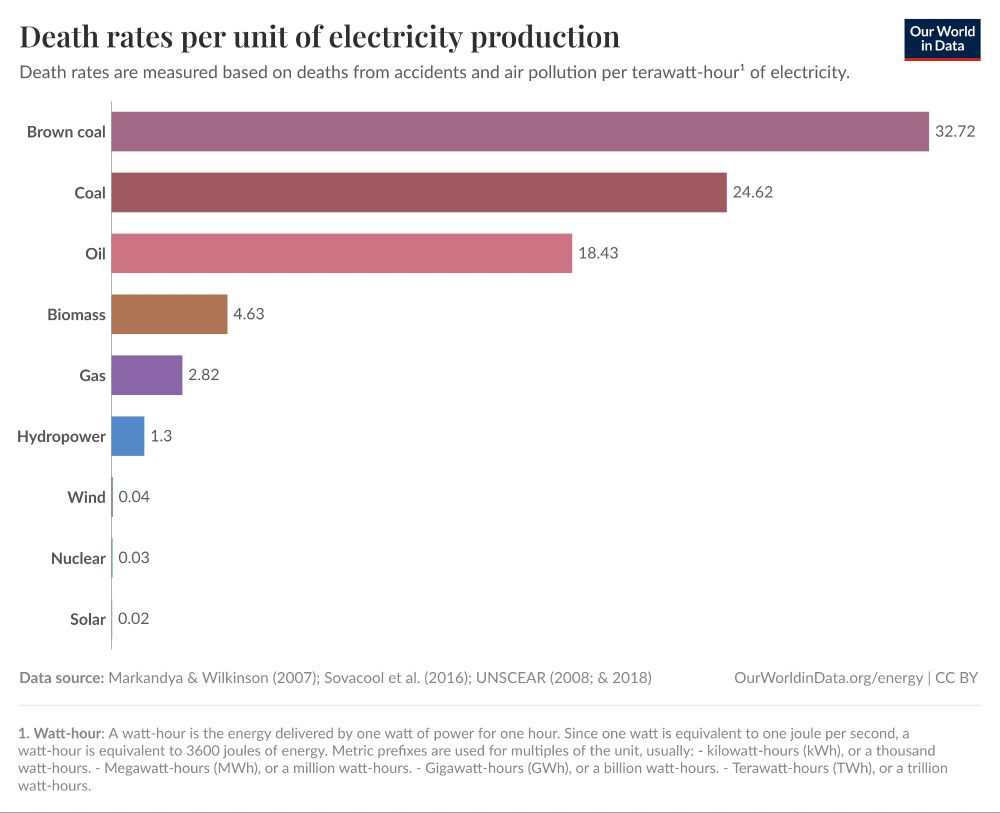I'm a big fan of harm reduction. Passkeys are *better* than passwords. Nuclear power is *better* than coal or LNG. Vaping is *better* (maybe?) than smoking.
They're not perfect. They're often not even good enough. But they are better then the status quo, and that's important.
I'm not sure that nuclear is *better*. It's only better if there isn't an accident. If there *is* an accident, though, it's thousands of times more deadly and dangerous.
Including all nuclear accidents in history, coal and gas still kill thousands of times more people, in both absolute terms and on a per TwH basis. Always have.

What are the safest and cleanest sources of energy?
Fossil fuels are the dirtiest and most dangerous energy sources, while nuclear and modern renewable energy sources are vastly safer and cleaner.
Cool. Now do solar.
Sure. Nuclear is .03 deaths/TWh, solar is .02. Better!
But gas is 2.8, and coal is ~28 (!), which make a .01 deaths/TWh difference pretty meaningless when there's a huge undersupply and we need all the clean (enough!) and safe (enough!) energy we can get.
My point remains. *If there is an accident*, nuclear is still the most toxic. Accidents are almost always caused by human error and humans error by design. It's literally how we learn. Not to mention that the majority of the nuke plants in the US were designed and built in the 70's.
May 7, 2025 17:26You're absolutely right, nuclear accidents are badly toxic! Coal particulate emissions are too. The good news is that we don't have to guess at hypotheticals; we've run coal plants for decades, had multiple bad nuclear accidents, and measured the impacts of both. These numbers include all that.
I'm guessing the former residents of Fukushima probably disagree...

